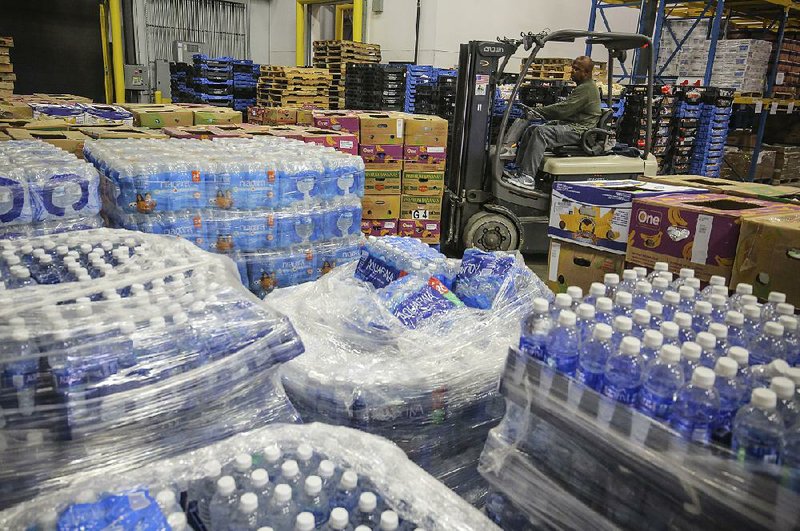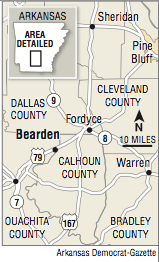The drinking water in Bearden, the Ouachita County town of about 920 residents in south Arkansas, tested three parts per billion higher than the level at which the federal government requires water systems to adjust corrosion levels, a state official said Wednesday.
The Bearden School District has been allowing students to carry bottled water that the district or the students provide. Pupils also have been offered filtered water, or they may continue drinking from the water fountains if they want, Superintendent Denny Rozenberg said.
Until December, Bearden's water system had always tested quite well, said Jeff Stone, director of the Arkansas Health Department's engineering section that deals with drinking water. As a result, the town, which is near Camden, had to report to the state only once every three years. Now, it will have to report more often, Stone said.
"We do not consider this situation to be an emergency situation where people should stop utilizing their [regular] drinking water," Stone said. "Rather, it's an indication the system needs to address their corrosion control."
Stone said it was his understanding that Bearden immediately started looking at treatment adjustments to try to better control its corrosion after learning of the problem.
The Arkansas Health Department regulates 700 water systems.
"Maybe every year out of those 700, there will be three or four systems -- I'm roughly estimating -- where the results indicate they need to take another look at their corrosion control levels," Stone said.
Federal regulations set 15 parts per billion among the 90th percentile for lead levels at a water system's tested sites as the level that triggers requirements for a system to take action to control corrosive elements and notify customers.
Bearden, which relies on well water, tested 10 sites in December and ended up with a 90th percentile reading of 18 parts per billion, Stone and Bearden Mayor Iva Lou Stoker said.
"I talked to the people at the Health Department," Stoker said. "They told me it was absolutely nothing to be alarmed about."
She said she and her elderly parents still drink the town's water.
"I'm not afraid, but that does not alleviate fear from others, and I respect" that, Stoker said.
By comparison, the 90th percentile reading among 271 Flint, Mich., homes tested for lead in the summer of 2014 was 27 parts per billion, according to a January 2015 article in The Washington Post. Compounding the problems that worsened over time in Flint were old lead pipes used in some parts of the city and a highly corrosive water source, the newspaper reported.
Flint's water troubles had been there some time, while Bearden's are recent, and the Arkansas town's plumbing wouldn't be as old as Flint's, Stone said.
Stone said none of Bearden's 10 water samples were taken at a school site.
Rozenberg said water servicing the school system was scheduled to be tested early today before classes begin.
Stone said he hopes to have those test results back within a couple of weeks.
Rozenberg said the Arkansas Foodbank donated more than 100 cases of bottled water to the school system Wednesday. Others also have donated water. The district also has bought filter systems for its cafeteria and some other sink faucets and has bought filter pitchers.
As for students drinking bottled water, Stone said he sees no "downside to that if it makes people feel more secure and confident."
"If it was me personally in that school, I'd probably use the fountain and not worry about it," Stone said. "It is a personal choice."
"It was never an intent at the federal level to issue a no-drink order" at the 15 parts per billion level, he added.
State Desk on 01/12/2017


